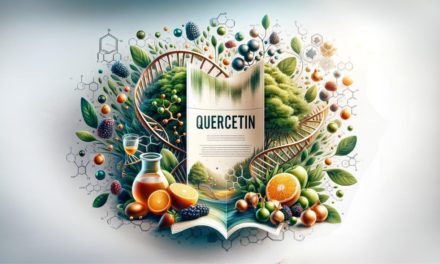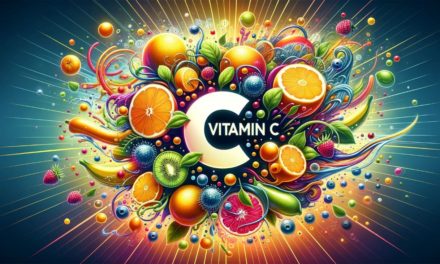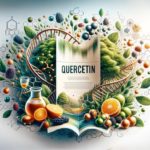Summary Bullets:
- N-acetyl cysteine (NAC) is a powerful compound that supports immune health, respiratory health, liver detoxification, cognitive function, and heart health.
- Incorporating NAC-rich foods like eggs, poultry, yogurt, and broccoli into your diet can provide a natural source of cysteine, the precursor to NAC.
- NAC supplementation, available in capsule or powder form, offers a more concentrated dose of this essential compound, although it is important to consult with a healthcare professional for personalized advice on dosage and timing.
Unlock the power of your immune system with the remarkable compound known as N-acetyl cysteine (NAC). In today’s fast-paced world, maintaining optimal health is a priority, and NAC offers a multitude of benefits that can support your immune health and overall well-being. From its role in fortifying immune function and promoting respiratory health to enhancing liver detoxification and cognitive function, NAC proves to be a true wellness ally. In this blog, we will explore the extraordinary potential of NAC, including its sources, supplementation, absorption optimization, and why it deserves a prominent place in your daily health routine. Get ready to discover how NAC can help you unlock a stronger immune system and thrive in a world full of wellness challenges.
Unleashing the Benefits of NAC
N-acetyl cysteine (NAC) is a remarkable compound that offers a wide range of benefits for immune health, respiratory health, liver detoxification, and cognitive function.
- Immune Health: NAC supports immune system function by acting as a precursor to glutathione, a powerful antioxidant that plays a crucial role in immune cell activity. Glutathione helps protect the body from harmful substances and promotes the regeneration of cells and tissues. By neutralizing free radicals, NAC helps boost overall wellness and strengthens the body’s defense against infections and diseases.
- Respiratory Health: NAC has shown great potential in supporting respiratory health. It can thin and loosen mucus in the airways, making it easier to clear congested lungs. This property makes NAC beneficial for conditions such as chronic obstructive pulmonary disease (COPD), asthma, bronchitis, and sinusitis. Moreover, NAC’s antioxidant properties help reduce inflammation in the respiratory system, supporting healthy lung function.
- Liver Detoxification: The liver is responsible for filtering toxins and waste products from the body. NAC aids liver detoxification by promoting the production of glutathione, which plays a key role in eliminating harmful substances. It also helps protect the liver against oxidative damage caused by alcohol consumption and exposure to environmental toxins.
- Cognitive Function: NAC has been studied for its potential cognitive benefits. It may help improve mental clarity, memory, and attention span by supporting the synthesis of glutathione and promoting balanced neurotransmitter levels. NAC’s antioxidant and anti-inflammatory properties also contribute to brain health by reducing oxidative stress and inflammation, which are underlying factors in neurodegenerative diseases.
- Heart Health: NAC has been found to promote cardiovascular health by supporting nitric oxide production. Nitric oxide helps dilate blood vessels, improving circulation and ensuring efficient nutrient and oxygen delivery throughout the body. It also helps regulate blood pressure and maintain a healthy heart.
In conclusion, NAC is a versatile compound that plays a vital role in supporting immune health, respiratory health, liver detoxification, cognitive function, and heart health. Its ability to bolster the body’s defense system, neutralize free radicals, and support various physiological processes make it a valuable supplement for overall wellness. However, it is always advisable to consult with a healthcare professional before starting any new supplement regimen.
Best Sources for NAC
While NAC can be found naturally in certain foods, it is important to note that the amount of NAC obtained from diet alone may not be sufficient to achieve therapeutic benefits. Nevertheless, incorporating foods rich in cysteine, an amino acid from which NAC is derived, can still contribute to supporting immune health. Here are some dietary sources of cysteine:
- Eggs: Eggs are a great source of cysteine. They also contain other valuable nutrients like protein, vitamins, and minerals. Consuming eggs regularly can help provide a steady supply of cysteine to support NAC production.
- Poultry: Poultry, such as chicken and turkey, is another excellent source of cysteine. These lean meats are not only rich in protein but also provide cysteine for your body to convert into NAC.
- Yogurt: Yogurt is not only a probiotic-rich food but also a good source of cysteine. Opt for plain or Greek yogurt to avoid added sugars and artificial flavors.
- Broccoli: Broccoli is a nutrient-dense vegetable that contains cysteine. It is also packed with vitamins, minerals, and phytonutrients, making it an excellent addition to a balanced diet.
Although these foods contain cysteine, it is important to note that NAC supplements provide a more concentrated and reliable source of this compound. NAC supplements are available in various forms such as capsules, tablets, and powders, making it easy to incorporate them into your daily routine.
Before starting any new supplement or making significant changes to your diet, it is recommended to consult with a healthcare professional who can provide personalized advice based on your specific needs and health conditions.
Daily Intake and Supplementation
While including NAC-rich foods in your diet is beneficial, sometimes dietary sources may not provide sufficient amounts to achieve the desired immune health support. This is where NAC supplementation can be advantageous. NAC supplements are available in capsule or powder form, offering a concentrated dose of this essential compound.
The recommended daily intake of NAC may vary depending on factors such as age, overall health, and specific needs. Generally, the range for daily supplementation typically falls between 600 mg to 1800 mg. However, it is crucial to consult with a healthcare professional before starting any new supplementation regimen as they can provide personalized guidance based on your individual requirements.
NAC supplements come in different strengths, allowing you to choose your preferred dosage. Factors such as the severity of your condition, your body’s response, and the recommendation of a healthcare professional can help determine the appropriate dosage for you.
It is important to note that NAC supplements should be taken as directed on the product label or as advised by your healthcare professional. Consistency and adherence to the recommended dosage are key to potentially experiencing the benefits of NAC.
Additionally, it is essential to choose high-quality supplements from reputable brands. Look for supplements that undergo third-party testing to ensure quality, purity, and safety.
While NAC supplementation can be beneficial, it is not intended to replace a healthy diet or lifestyle. It is meant to complement a balanced diet and overall wellness routine. Remember to prioritize a well-rounded approach to health, including regular exercise, sufficient sleep, a nutritious diet, and stress management.
As always, before starting any new supplement or making significant changes to your health regimen, it is advisable to consult with a healthcare professional who can provide personalized advice based on your specific needs, existing health conditions, and potential interactions with any medications you may be taking.
Factors Affecting NAC Absorption
Optimizing NAC absorption is an important consideration to ensure you get the maximum benefits from supplementation. Here are some key factors to keep in mind:
- Timing: NAC is generally recommended to be taken on an empty stomach for optimal absorption. This means waiting at least one hour before or after meals to take your NAC supplement. When taken with food, especially protein-rich foods, the absorption of NAC may be reduced due to competition with other amino acids.
- Avoid Interference: Certain substances can interfere with NAC absorption. For example, alcohol can impair the body’s ability to absorb NAC effectively. It is generally best to avoid alcohol consumption when taking NAC supplements to maximize its benefits.
- Avoid Interactions: Certain medications and supplements can interact with NAC and hinder its absorption. Iron supplements may reduce NAC absorption, so it’s advisable to take NAC separately from iron supplements. Similarly, antacids containing aluminum or magnesium can bind with NAC and decrease its absorption. If you are taking any medications or supplements, it is important to consult with a healthcare professional to determine the best timing and avoid potential interactions.
- Water Intake: Drinking an adequate amount of water when taking NAC can help facilitate its absorption and distribution in the body. Staying well-hydrated supports the overall absorption of nutrients, including NAC.
- Consistency: To maintain steady levels of NAC in the body, it is important to take supplements regularly and consistently as directed. This helps ensure a constant supply of NAC to support its various beneficial functions.
By considering these factors and following proper guidelines, you can optimize NAC absorption and potentially enhance its effectiveness in supporting immune health, respiratory health, liver detoxification, cognitive function, and heart health. As always, consulting with a healthcare professional is recommended to receive personalized advice based on your specific needs and health conditions.
In conclusion, N-acetyl cysteine (NAC) is a remarkable compound that plays a vital role in supporting immune health, respiratory health, liver detoxification, cognitive function, and heart health. As a precursor to glutathione, NAC acts as a potent antioxidant, protecting the body from harmful substances and promoting the regeneration of cells and tissues. Its ability to neutralize free radicals makes NAC an essential component of the body’s defense system, promoting overall wellness and boosting immunity.
NAC’s benefits extend beyond immune health. It supports respiratory health by thinning mucus, reducing inflammation, and alleviating conditions such as COPD, asthma, and bronchitis. It aids in liver detoxification by assisting with the production of glutathione, helping eliminate toxins and protecting against oxidative damage. Furthermore, NAC shows promise in improving cognitive function by supporting neurotransmitter balance and reducing oxidative stress in the brain.
While certain foods like eggs, poultry, yogurt, and broccoli contain cysteine, the precursor to NAC, dietary sources may not provide sufficient amounts. NAC supplementation, available in capsule or powder form, offers a more concentrated and reliable source. It is important to consult with a healthcare professional to determine the appropriate dosage and properly time NAC consumption for optimal absorption.
To fully benefit from NAC, it is crucial to prioritize accurate information and consult with a healthcare professional. By incorporating NAC into your routine, whether through diet or supplementation, you can empower your immune system and support your overall well-being naturally. Take control of your health and give your immune system the boost it deserves.
“Unlock Optimal Wellness with NAC! Strengthen Your Immune System and More. Get exclusive insights on how N-Acetyl-L-Cysteine can elevate your overall health. Click Here now to Purchase my favorite 6 in 1immune support – Immune Essentials Daily and embark on your wellness journey











